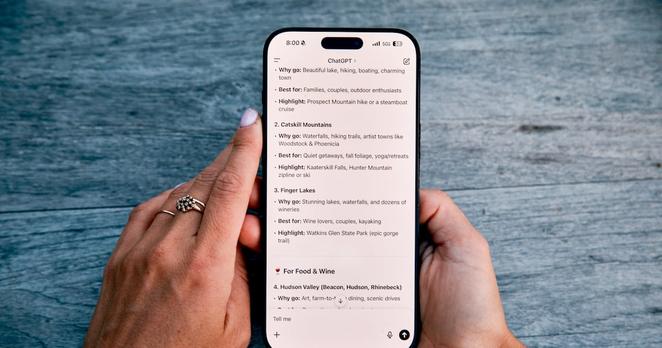#teaching
I done a blog post, for the first time in forever. https://www.bone-idol.net/2025/09/17/teaching_devops/. I'm teaching a small cohort of DevOps apprentices, and while planning their second year out (my first full year of teaching), I saw a glittering pathway to DevOps excellence unfurl before me. Or it's hilariously misguided pedagogical foolishness. Who knows?! But at least people can see me try this out in real time. Part 2 will be coming soon as things are already changing after just one session with the students. #Teaching #Education #FurtherEducation #Apprentices #DevOps #Blog
there's still time to submit (Sept 19) your AI-infused approach/strategy/activity for teaching and learning! Please consider contributing to this open-access resources!
https://stars.library.ucf.edu/traiil/
Excited to share this piece I wrote for the New York Times Learning Network, that turns Steven Strogatz's excellent "Math, Revealed" essay on taxicab geometry into a (hopefully!) useful resource for teaching and learning.

Learning is a process of trying, experimenting, imitating, practicing, and asking lots and lots of questions.
That's why children are -- before we train them out of it -- such great learners.
We, too, can gain that back by re-learning what we have been trained out of: experimenting, imitating, practicing, and asking lots and lots of questions.
Into the Surf art print -- https://stevehendersonart.com/featured/into-the-surf-steve-henderson.html?product=art-print
This may be one of the most shallow understandings of using outcome orientation as a teaching technique in a long time.

I'm preparing a lecture for our #DigitalScholarlyEdition Summer School next week using the 3x3 format (in its shortest version).
I'm feeling so overwhelmed and rusty doing this! I haven't given a proper lecture in years, especially not an interactive one.
Kudos to all of you who teach on a regular basis - this is HARD!
‘The schoolteacher does not inquire when she questions a pupil, any more than she informs when she teaches a rule of grammar or arithmetic. She “teaches”, she gives orders, she commands.’
And, we might add, she assigns, as we read further on:
‘The apparatus of compulsory education does not communicate information, but imposes semiotic coordinates on the child with all the dual bases of grammar (masculine-feminine, singular-plural, subject of the statement-subject of the utterance, etc.). The elementary unit of language is the instruction.’
(Deleuze, Guattari, 1980, pp. 95-96)
2/2
What I found was interesting.
I've been writing questions to assess knowledge and prevent the student trying to BS their way through from succeeding.
For example, I ask a specific example about what dopamine does in a made up experiment that is close but not identical to one in the literature. If the student understands reward-prediction-error* and works through it carefully, they get the right answer. If they just make the analogy to the older experiment, they get the wrong answer.
Truth be told, I originally did this because a lot of students work like AI/LLMs themselves, and a lot of my goal is trying to teach them not to do this. So I started developing questions that if you understood it you got it right, but if you just work by analogy to the examples, you get it wrong.
Turns out this is good for preventing AI from getting good grades.
* Yes, DA >> RPE, but this is an intro theory class and that part of the class is about understanding how we get to RPE so we can go beyond it later.
1/2
I assume people have seen the new #google #chrome "Homework Help" button that shows up when the browser is pointed to educational websites.
It doesn't do anything the student couldn't do on their own if they want, but it makes it really easy and puts the temptation there. (as if no one understood how cueing works!) What it does is access google lens, does OCR on the selected image and opens an AI sidebar.
This forced me to take another look at how #AI does on my exams....
I have 10+ years of teaching computer literacy for #HPC users on my back.
First we noticed, that #teaching a batch system is insufficient: people need shell skills (of course) and also just a batch system falls short of the need of data analysts.
Now, actually already before corona, I started noticing: virtually none of the current student generation actually ever took a typewriting course.
Code completion helps, even without AI. But essentially every #programming course gets stalled, when people cannot type a word just like that. And don't get me started about special characters ...
Where are we going?
I found this to help a student and now I'm wondering how I had NEVER come across it before! #teaching
".. giving up on the intellectual labour of reading, thinking, and writing because it’s easier or the future ... that’s a capitulation. That’s anti-intellectualism disguised as innovation.” #ai #llm #teaching #learning https://www.irishtimes.com/ireland/education/2025/09/09/its-a-monster-how-generative-ai-is-forcing-university-professors-to-rethink-learning

In a week (9/17), I'll be giving a talk at PositConf about WebR/Pyodide for teaching. Curious about how to use R and Python in the browser effectively for teaching? Come learn about how we use it for teaching intro courses at the Fred Hutch Data Science Lab! #datascience #teaching #rstats #python
Social media is teaching children how to use AI. How can teachers keep up?
#AI #Education #Teaching #Teachers #AIinSchools #EdTech #ArtificialIntelligence #Learning #Students #SocialMedia #FutureOfEducation #CriticalThinking #EquityInEducation #Equity
https://the-14.com/social-media-is-teaching-children-how-to-use-ai-how-can-teachers-keep-up/
Redoing my intro on my shiny new instance:
Hi, I'm Coral (NOT Carol)
In real life I love #birds, #coffee, crafting, cozy video games, biking, reading, and gardening. I have a spouse, two #cockatiels, and two #budgies
At work I'm into #tech, #UX, #a11y (don't talk to me about DEI without the A), and #teaching. I'm a librarian, electrical engineer, and former #CommunityCollege prof, now doing #WebDev via #RemoteWork for an #academic #library
A good day in the classroom today: introduced the idea of limits and "arbitrarily close"; constructed perpendicular bisectors with compass and straightedge; and talked about freedom vs. constraint in linear systems.
The beginning of the school year always requires a lot of energy -- getting to know students, building classroom culture, communicating and modeling expectations -- but it feels great when classes start to come together and conversations start moving in the right direction.
Migod, keep those book recommendations coming! I'd also love some poetry and graphic novel ideas. Rose that Grew from Concrete is a student favorite. #teaching #bookstodon

 Cui Bono?
Cui Bono?